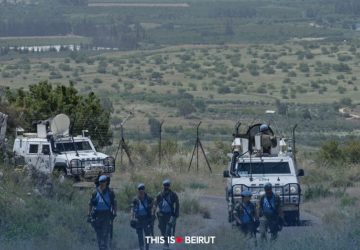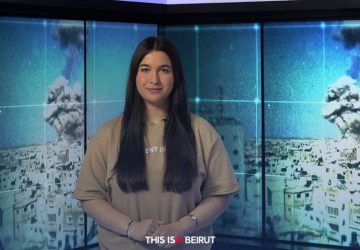Listen to the article
The Israeli airstrike on Tuesday evening in the southern suburb of Beirut, which killed Saleh al-Arouri, vice president of the political bureau and “number two” of Hamas, raises questions about a potential escalation in military tensions. This Israeli drone attack in the southern suburb, a Hezbollah stronghold, is particularly noteworthy as it marks the first occurrence of such an incident since 2006.
The targeted airstrike hit a Hamas office, where al-Arouri was present, instantly killing him, along with two other high-ranking officials of the Palestinian fundamentalist organization. Al-Arouri, a co-founder of Hamas’ military wing, “kataëb el-Qassam,” (Qassam Brigades) and a key figure in the organization, is believed to be one of the masterminds of the October 7 operation. He is particularly known for being the primary interlocutor of Hezbollah’s Secretary-General, Hassan Nasrallah, with whom he was scheduled to meet on Wednesday, January 3.
Israel’s strategic action struck right in the pro-Iranian party’s stronghold, just days after the assassination of a senior official of the Iranian Revolutionary Guards, Reza Mousawi, in the heart of the Syrian capital. It follows the recent aerial raid near Damascus airport, which reportedly also targeted Revolutionary Guards officials.
Such attacks and targeted assassinations are predictable in light of the ongoing conflict between Israel and Tehran’s proxies, notably Hamas and Hezbollah.
What adds a particular dimension to Tuesday evening’s raid is not only its spectacular nature and the significance of the target, but also its occurrence at a particularly delicate and crucial moment in the devastating Gaza conflict. Egypt, supported by Qatar acting as a mediator with Iran, has recently engaged in talks in Cairo with Hamas leaders to initiate a step-by-step political solution process with Israel. The Egyptian initiative aligns with a broader backstage effort by Washington to solidify a comprehensive settlement.
The assassination of the “number two” man of the Palestinian organization is likely to prompt the Hamas leadership to suspend the ongoing negotiations with Egypt, similar to how the deadly attack on October 7 disrupted the normalization process between Saudi Arabia and Israel.
This does not necessarily imply that Lebanon and the region are inevitably on the brink of an uncontrollable large-scale war. The Islamic Republic, for its part, has no political motivation to engage in a widespread conflict, having achieved its strategic objective on October 7, when Hamas launched its unprecedented attack on Israel. This served as a reminder to regional and international decision-makers of Iran’s indispensable role. Having accomplished this goal, there is little incentive for Iran to risk weakening its primary instrument of power in the Mediterranean, Hezbollah, by entangling it into a full-fledged war.
Nonetheless, a political-military standoff is indeed underway. It is crucial to approach this situation with careful consideration. The current focus is on eliminating or at least marginalizing Hamas, which seeks to establish itself as the primary representative and interlocutor for Palestinians, supplanting the Palestinian Authority and Fatah. This focus does not directly involve Hezbollah. Both the advisor to Israeli Prime Minister Benjamin Netanyahu and the Israeli military have explicitly stated in unison that Tuesday evening’s operation was not directed against the Lebanese government or, more importantly, Hezbollah.
The Israeli airstrike in the southern suburbs of Beirut conveys multiple messages. It serves as a warning to Hamas, underlining the all-encompassing nature of the ongoing war against the organization. Additionally, it puts Hezbollah on notice, indicating that Israeli forces are capable of striking deep into its stronghold in the southern suburb if the group doesn’t curb its military activities in the UNIFIL zone in South Lebanon. Moreover, it signals to Iran the need to constrain its expanding influence, as evidenced by recent Israeli strikes against the Islamic Revolutionary Guard Corps (IRGC) in Syria.
An American source quoted by the New York Times indicated that the assassination of Saleh al-Arouri is seen as the start of a series of operations carried out by Israel, likely to be precise and targeted, similar to the one executed in the southern suburbs. The article anticipates that Hamas might retaliate by suspending talks with Cairo, but notes that this aligns with the political objective sought. The broader settlement being discussed in various Arab and international capitals requires the involvement of a moderate and pragmatic Palestinian leadership, especially since the envisioned settlement goes beyond the specific case of Gaza, foreseeing a comprehensive two-state solution in the medium term, reminiscent of the spirit of the Oslo process disrupted in the mid-1990s by Hamas and the Israeli far-right.
However, in a region as intricate and tumultuous as the Middle East, it is crucial not to jump to conclusions. In the immediate aftermath, one should expect fiery and unrestrained rhetoric. Yet, Arab and Lebanese populations are well-acquainted with such sterile gesticulation. On the ground, an escalation in skirmishes and artillery exchanges along the southern border is likely, perhaps accompanied, further afield, by missile strikes against Tel Aviv or other Israeli towns. However, these are likely to be controlled maneuvers. The decision to engage in a general war is fundamentally a political one, made at the level of major regional and international players, namely Iran, the United States and Israel.
Nevertheless, a significant unknown persists: do extremists and radical factions, represented by the Israeli far-right, the Revolutionary Guards (IRGC) and Palestinian fundamentalists, still possess a potent disruptive capacity that could plunge the region into a wildly unpredictable war with barely foreseeable consequences? The answer today lies more than ever in a necessary rallying of pragmatic leaders among Arabs, Palestinians and Israelis.





